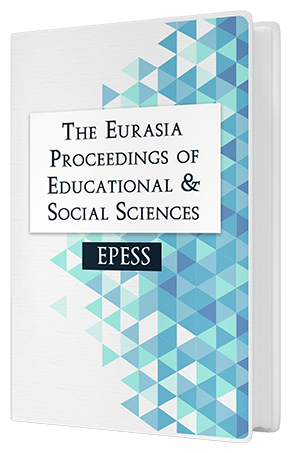Opinions of Classroom Teachers on In-service Training
DOI:
https://doi.org/10.55549/epess.1051091Keywords:
In-Service Training, In-Service Training Approaches, Professional Development.Abstract
Continuous developments and changes have demonstrated the need for us to develop in every sense. In this respect, it is through in-service training that teachers adapt to this change and improve themselves in many ways. This research aims to determine the opinions of classroom teachers about in-service education. The research was conducted in the spring semester of 2020-2021. The research is qualitative and designed with a case study. Easy-to-access case sampling was used under pure sampling methods when selecting a study group. The interview technique was used as a data collection method. For this purpose, semi-structured interviews were conducted with classroom teachers (1 male, 4 female) working in various provinces and districts of Turkey. Interview questions were asked as five open-ended questions and five sub-questions. Due to the Covid-19 pandemic, the interviews were made by phone, and audio recordings were obtained with permission. Content and descriptive analyses were performed on the data obtained during the interview. According to the data obtained from the interviews, themes were created, themes were strategized and the opinions of the teachers were explained by quoting directly. Interviews were supported by photos. In the light of the findings of this study, it was concluded that in-service training should be based on practice, that the practitioner should be equipped, that there should be different types of training, and that there should be in-service training not only professionally, but also to improve communication. According to the results obtained, separate training should be given for the instructors to be better equipped, application-based training should be increased, and the subjects of the training should be diversified.Downloads
Published
Issue
Section
License
Copyright (c) 2021 The Eurasia Proceedings of Educational and Social Sciences

This work is licensed under a Creative Commons Attribution-NonCommercial-ShareAlike 4.0 International License.
The articles may be used for research, teaching, and private study purposes. Any substantial or systematic reproduction, redistribution, reselling, loan, sub-licensing, systematic supply, or distribution in any form to anyone is expressly forbidden. Authors alone are responsible for the contents of their articles. The journal owns the copyright of the articles. The publisher shall not be liable for any loss, actions, claims, proceedings, demand, or costs or damages whatsoever or howsoever caused arising directly or indirectly in connection with or arising out of the use of the research material. All authors are requested to disclose any actual or potential conflict of interest including any financial, personal or other relationships with other people or organizations regarding the submitted work.




